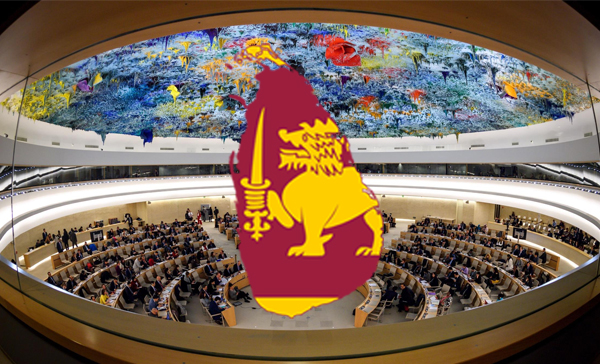Sri Lanka has reiterated to the UN Human Rights Council (UNHRC) it will not accept Resolution 51/1 which was passed by the Council last year.
The Permanent Representative of Sri Lanka to the UN in Geneva, Himalee Arunatilaka, told the 52nd Regular Session of the Human Rights Council that a series of unhelpful resolutions had been adopted by the HRC, the latest being Resolution 51/1, without Sri Lanka’s consent as the country concerned.
“I reiterate Sri Lanka´s position, which was stated by the Minister of Foreign Affairs last October, that we reject this resolution, which will extend and reinforce the so-called external evidence gathering mechanism on Sri Lanka established by the OHCHR in line with its own interpretation of Resolution 46/1. These resolutions are unhelpful to the people of my country, will polarize Sri Lankan society, and do not serve the objective of promoting reconciliation in Sri Lanka. We are of the view that this is an unproductive drain on the scarce resources of UN Member States which can be productively deployed elsewhere,” Arunatilaka told the Council.
She said that steps must be taken to depoliticize human rights and find solutions to concerns through dialogue and multilateral cooperation rather than through confrontation, selectivity and unilateralism.
Arunatilaka said that the domestic institutions for reconciliation and accountability in Sri Lanka continue to carry out their work towards achieving important post-conflict recovery and healing.
“A Cabinet Sub-Committee has been established under the Chairmanship of the President, to promote reconciliation among different communities and to address and resolve matters relating to issues encountered by the peoples of the Northern and Eastern Provinces. The Committee has identified issues to be addressed expeditiously, including, developing a truth-seeking mechanism, drafting a new counter-terrorism law, establishing an office for overseas Sri Lankans, preparing a Rapid Development Plan for the North and the East, and addressing matters related in particular to missing persons, resettlement and land,” she said.
Arunatilaka said that discussions are in progress relating to a Truth-Seeking Mechanism within the framework of the Constitution while the contours of a model that would suit Sri Lanka are currently being assessed.
“The 21st Amendment to the Constitution of Sri Lanka, passed by Parliament in October 2022, provides for further strengthening of democratic governance, independent oversight of key institutions, the composition of the Constitutional Council and independent commissions,” Arunatilaka said.
She also noted that a Cabinet appointed Sub-Committee is developing legislation on counterterrorism that balances national security concerns with international standards and best practices.
Arunatilaka also said that work is under way to operationalize an Office for Overseas Sri Lankan Affairs to facilitate more vigorous engagement with expatriate Sri Lankans encompassing all communities and generations.
The diplomat said that despite the current socio-economic challenges and constraints, Sri Lanka’s resolve to the promotion and protection of human rights and fundamental freedoms of its people remains steadfast and determined.


